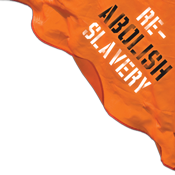“This insistence on secrecy was fueled in part by Reagan’s fear that the hostages or the men inside Iran doing the talking would be killed if details of the negotiations became public. Nobody in the Reagan administration had good enough contacts to know if this fear had any basis in reality. Hard data had never been-and would never be-a controlling factor in the Reagan administration’s decision-making process. But there was also just the embarrassment factor. Given a choice between secrecy and the public finding out about the operation’s Laurel-and-Hardy-worthy failures (up to and including the Iranians sending our weapons back, dissatisfied!), who wouldn’t choose secrecy? Finally, there was the fact that much of what Team Reagan was doing was not simply flying in the face of their own stated policy against dealing with terrorists (‘We make no concessions,’ Reagan had said. ‘We make no deals’) or state sponsors of international terrorism (Iran was a gold-plated designee on that list); it was not just shredding the president’s own executive orders and national security directives; it was not simply executing a spectacular and hypocritical affront to good sense and good diplomacy; but, in fact, much of this arms-for-hostages operation was quite flagrantly against the law. Flat-out illegal.” (>>)
Wednesday, February 27th, 2013 :: 9:56 AM





